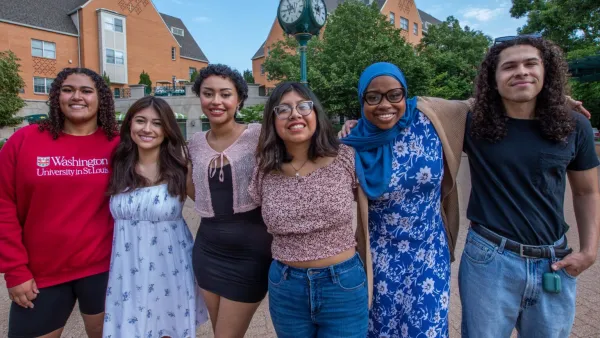In Memoriam: John Drummond Sprague (March 14, 1934 – December 21, 2023)
We are sad to announce the passing of John Drummond Sprague, beloved husband, father, grandfather, esteemed professor, and mentor. Born on March 14, 1934, in Sandy Creek, NY, John’s remarkable life was marked by his unwavering commitment to knowledge, its dissemination through teaching, and political discussions, as well as his love of music, travel, art, cooking, gardening, birding, knot tying, sailing, basil growing, barometer tapping, photo-graphing, hat dying, banjo picking, and many other joys associated with our camp at “The River” in the 1000 Islands region of the St Lawrence Seaway in upstate New York.
John was the cherished husband of Carol Weitzel Kohfeld and leaves behind a legacy through his children: Michael Sprague (Lori Schwartz), Robert Sprague (Carolyn Sprague), Peter Sprague (Robin Lynch), Nell Ruby (Matt Ruby), Kurt Kohfeld (Sandy Kohfeld), and Karen Kohfeld (Klaus Rathe). His memory will also be cherished by his grandchildren Irene Ruby, Parker Sprague, Gib Ruby, Milo Ruby, Lewis Sprague, Kristen Kohfeld, and Katherine Rathe. He is also survived by Mary Sprague, mother of his children. He was uncle, cousin, and friend to many. John is predeceased by his parents Wendell and Lois Sprague, his brother Peter Radley (Mary Lou) Sprague, and his sister Charlotte Ann Sprague.
A distinguished scholar, John was a Fulbright Scholar who earned Bachelors, Masters, and PhD degrees from Stanford University. With grants from the U.S. National Science Foundation and the National Institute of Justice, his illustrious career as a professor spanned 35 years at Washington University, where he became the Sidney W. Souers Professor Emeritus of Government in the Department of Political Science in Arts & Sciences. He served as Chair of Political Science, as President of the Midwest Political Science Association, and a member of the Board of Overseers of the National Election Studies and of the Political Science Panel of the National Science Foundation. The American Political Science Association honored him with a named award. The John Sprague Award is given annually to the best paper on political networks presented by a graduate student at a political science conference in the previous year and includes a cash prize.
John often described himself as simply a “bench scientist,” but if that term connotes someone who merely does experiments in a laboratory, it vastly underestimates John’s contributions. He was theoretically and methodologically innovative, and he applied his abilities to a wide range of important political and social problems in his seven authored and coauthored books. While it is impossible to determine which of John’s contributions he would regard as his most significant, it is likely that most political scientists regard his work on the social context of politics to be his central contribution. John was as much a sociologist as a political scientist, and his interest in the consequences of social interactions drove much of his work. Paper Stones: a History of Electoral Socialism (with Adam Przeworski) focuses on the historic opportunity costs faced by Socialist parties in Europe as they sought electoral victories at a time when the working classes did not constitute a majority in any country. Socialist parties could pursue a pure “class-only” strategy or a “supra-class” strategy. The latter strategy forces a tradeoff: Socialist parties gain middle-class votes at the cost of losing working-class support. Empirically, how much support is lost depends on the political context, that is, on the strength and party affiliations of trade unions and whether communist parties compete for working-class votes. Paper Stones utilizes time-series data and an extremely profound analysis of class structure and vote shares to estimate these opportunity costs over long periods of time in seven European countries.
Social context and its effects on voting in the US take center stage in Citizens, Politics, and Social Communication. John and his colleagues draw initially on the “Columbia school” of electoral analysis, an approach emphasizing the effects of social interactions on opinions and behavior. But they also incorporate ideas from the rival “Michigan school” (which emphasized party identification as the central motivator of vote choice), as well as the rational-choice principal that citizens seek information at minimum cost to themselves. Part of the project’s innovativeness was its research design: a three-wave panel study in South Bend, Indiana, during the 1984 Reagan-Mondale campaign. Sixteen widely varying neighborhoods were chosen, and interviewers were able to identify and talk with 900 discussion partners of the 2100 main respondents. Voters’ social contexts were defined in terms of voting histories, contact with political parties, location in specific neighborhoods, and church attendance. The analysis focuses on “talk,” i.e., political discussions about issues and candidates. People talk with family members, of course, but they also talk with people in church, in their neighborhoods, and at work. They often pick people like themselves as partners, but they also talk with people who are unlike them but are thought to be knowledgeable, and these conversations influence their attitudes and vote choices. Receptivity to conversation partners’ choices depends, in part, on the overall preferences of their neighborhoods. The choices people make are thus not structurally determined; they are influenced by neighborhood pressures, contacts with political parties, and their individual conversation networks.
Citizens, Politics, and Social Communication remains an indispensable text in both American and Comparative politics. More than 20 years after its publication, for example, one of John’s former Washington University colleagues published a study of voting in Brazil and Mexico with a research design and a theoretical underpinning that draws heavily on John’s seminal work. Research designs of the kind that John (and Bob Huckfeldt) developed in Citizens are difficult and expensive to implement, but they are central to understanding the political implications of citizens living not in isolation but in real communities with social and political organizations.
Beyond academia, John was a renaissance man—known not only for his brilliance in the classroom but also for his love of music, proficient skills as a chef, prolific gardening, sailing (a voyage with Carol from Lake Ontario to Florida on board their sailboat ‘Red Shift’ was a highlight), fishing, enthusiastic eating, and his passion for bird watching. His home was adorned with copies of Sibley’s bird guide on every floor, a testament to his detailed reports of bird life and accurate water level readings at his beloved St Lawrence River.
John’s generosity extended beyond knowledge and academia. An avid cook, he was renowned for providing friends and family with extensive novellas describing his favorite recipes. His dinner rolls – a recipe from his grandmother that he made sure to pass down to grandchildren – were legendary. John’s dinner table was always a welcome place for friends, colleagues and students stranded in St. Louis at holidays. His warmth and kindness were encapsulated in his email sign-offs, always reminding recipients to “be kind, be generous.”
In celebrating the life of John Drummond Sprague, we remember a man whose impact reached far beyond the classroom, leaving an enduring legacy of kindness, generosity, and a deep appreciation for the wonders of the world. May his spirit live on in the hearts of those he touched, and may his love for learning and life continue to inspire generations to come. He is the epitome of the scholar-teacher in the best of all traditions. A memorial service will be held at a future date.
This obituary was shared by St. Louis Cremation and be may be found here.



